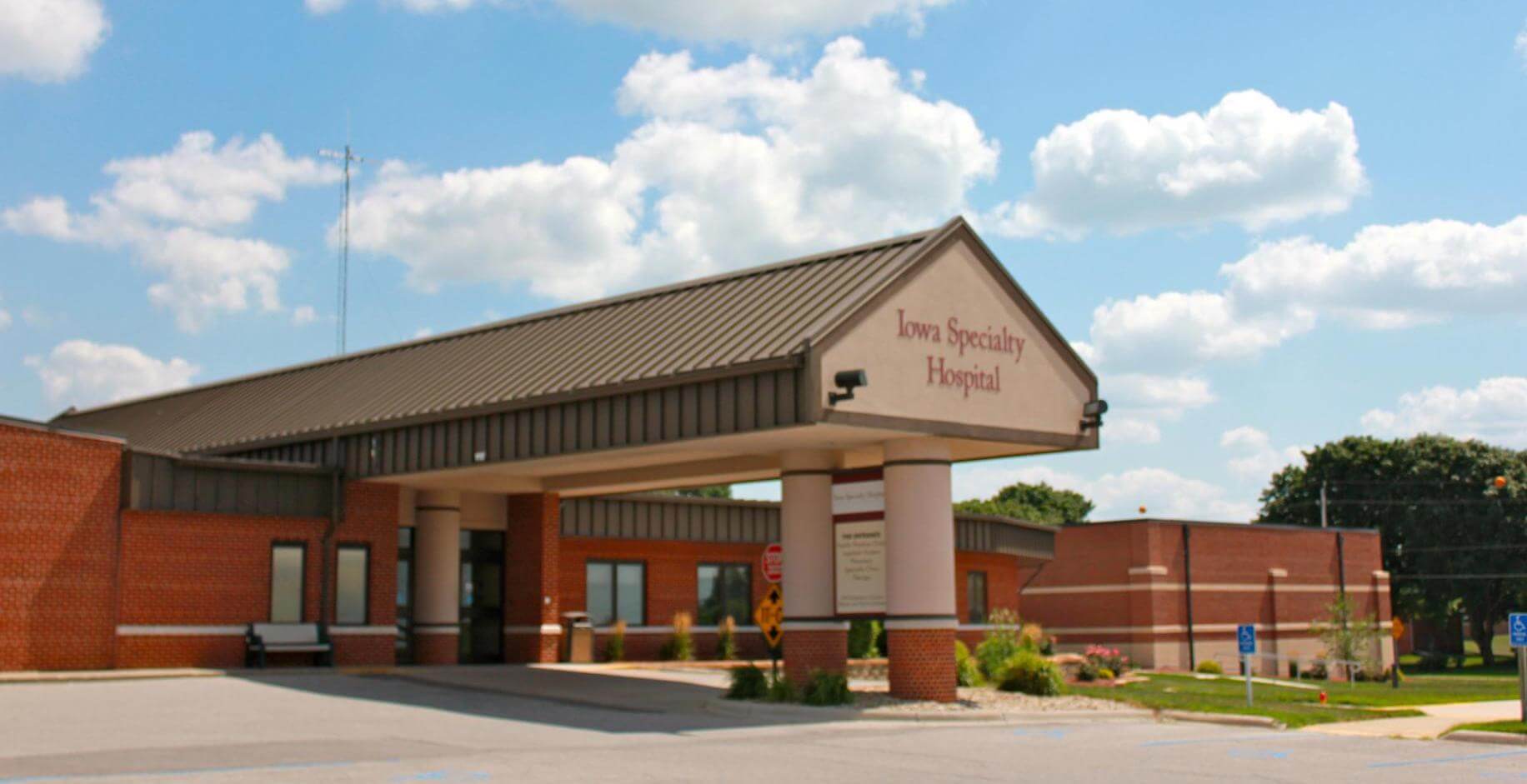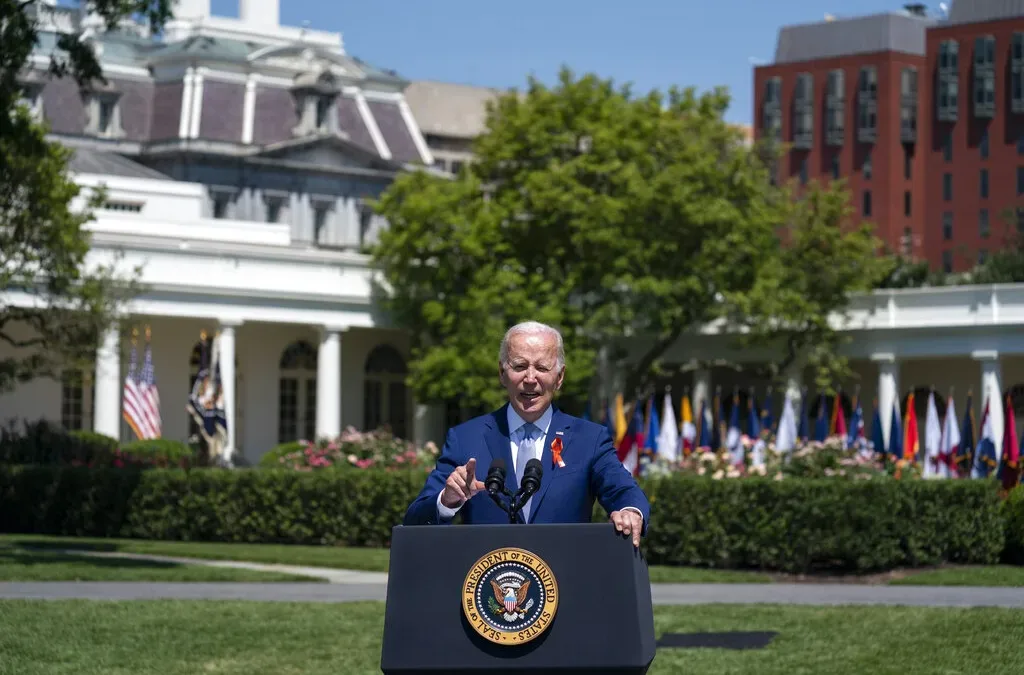
A doctor at Iowa Speciality Hospital recently told CEO Steve Simonin, “for every positive, there’s probably 90 walking around who haven’t been tested.”
“Another doc said a lot of people are just going to have it and not going to show symptoms and aren’t going to get tested, and so it’s a big unknown,” Simonin said. “We don’t know, and I hate that, but that’s a reality.”
The doctors are probably right. New data from the Centers for Disease Control and Prevention show up to 25% of people infected with COVID-19 might not show symptoms, but still could be contagious.
Simonin oversees two hospitals in Wright County, in Northern Iowa. As of Thursday afternoon, the Iowa Department of Public Health has reported one positive case of COVID-19 there. Simonin said the individual was tested at one of two hospitals in Clarion and Belmond and is now recovering at home.
“We’re hoping that it’s going to be the storm before the calm,” Simonin said.
“We’re getting everything together, we’re having all the calls and making sure we have all of the protective equipment, etc., etc., and hopefully nothing will happen, because we are practicing great social distancing up here. People are taking it very seriously, and we’re probably doing double the testing in our area than they are elsewhere just because we are really trying to be as prepared as possible.”
At least 614 Iowans have tested positive for COVID-19 as of Thursday afternoon. Of the tests reported by the State Hygienic Lab and others, 8,054 have been negative. Though the majority of cases are in Iowa’s three largest counties, small counties such as Washington, Tama and Muscatine also are reporting double-digits.
A breakdown of testing capacity by county is not available in Iowa, and hospitals often are tight-lipped about releasing specific numbers.
The CEO of Fort Madison Community Hospital declined to tell the Pen City Current how many tests were conducted there because, according to the article, “the numbers were small.”
“If people just want to know if they have it, it’s not going to change the treatment plan,” Shelby Burchett told the Pen City Current. “What we know about the [testing] criteria is that they are targeted at the sickest patients and the most vulnerable.”
[inline-ad id=”0″]
FMCH is part of Great River Health, which operates hospitals in West Burlington and Fort Madison and seven clinics in Des Moines, Lee, Louisa and Henry counties in Southeast Iowa.
A Burlington resident inquiring about the testing capacity in Des Moines County first directed her email to the board of supervisors and public health department. She was then told to ask the Iowa Department of Public Health, but has not received a response.
“Has Des Moines County Public Health released the number of Covid-19 tests that have been performed in our county? If not,” the resident wrote in her initial email to county officials, “why not and can these numbers be made available to the public? I myself am curious about the number of tests that have been performed in the county. I have also had others reach out to me asking if the county should/could share this information with the public.”
In a video message, Matt Wenzel, CEO of Great River Health, said a 24/7 hotline was established to field calls related to the coronavirus; respiratory centers are on campuses in West Burlington, Fort Madison and Mount Pleasant; and an in-patient unit was established specifically to treat individuals with COVID-19.
The Hawk Eye reported a drive-through testing center is set up at the Des Moines County fairgrounds to be used if needed. The county has reported one positive case of the respiratory disease.
Washington County Health Center has been more open about its testing capacity. Washington County, neighboring Johnson County, has confirmed 34 cases of the virus, the fourth-highest total in the state. As of March 27, the hospital told the Southeast Iowa Union it had tested 116 individuals.
Washington County Health Center, like the hospitals in Clarion and Belmond, is a designated “critical access hospital” and does not have the intensive care unit necessary to treat severely ill patients.
“Eighty-nine rural hospitals, they’re all in the same situation,” said Bill Menner, executive director of the Iowa Rural Health Association. “They’re all scrambling for equipment. They have smaller numbers of medical staff than say the University of Iowa, so say they were to get a surge, there’s fewer doctors and health care professionals to care for those people.”
[inline-ad id=”1″]
The University of Washington Institute for Health Metrics and Evaluation (IHME) developed modeling, now used by the federal government, to project the needs of American hospitals and the potential number of COVID-19 deaths, assuming social distancing measures are in place through May.
“In locations without social distancing measures currently in place,” IHME states, “we have assumed they will be in place within seven days of the last model update. If not, the number of deaths and burden on their hospital systems will likely be higher than the model predicts.”
Iowa has not issued a statewide “state-at-home” order, though Gov. Kim Reynolds has implemented school closures; closed restaurants and bars to dine-in customers; halted elective and non-essential surgeries; and ordered most retail shops to close.
The IHME model predicts Iowa will hit “peak resource use” on May 1, requiring 4,655 beds, 702 ICU beds and 562 ventilators. Nationwide, the virus’ peak is expected on April 15, with a total of 93,531 deaths by Aug. 4.
Based on those projections, Iowa is short 358 hospital beds and 456 ICU beds. The model predicts 1,488 Iowans will die due to COVID-19 between now and Aug. 4.
“We have no idea,” Menner said, echoing the Iowa Speciality Hospital CEO about the unknown impact of the coronavirus. “All a hospital can do, and all rural clinics can do, is prepare for what might happen.”
[inline-ad id=”2″]
When asked about the IHME model at Wednesday’s press conference, Sarah Reisetter, Iowa Department of Public Health deputy director, pointed out the model does not take into account Iowa’s closure of some non-essential businesses and schools, therefore the model’s projected death rate could be higher than what the state anticipates.
Unlike the model, IDPH predicts Iowa’s surge of positive COVID-19 cases will occur in the next two to three weeks.
Iowa is one of only five states that has not implemented a stay-at-home order, either regionally or statewide. Members of Congress, state lawmakers and candidates have called on Reynolds to formally issue the order so all non-essential businesses close and Iowans better grasp the importance of social distancing.
“I certainly am not in a position to criticize, necessarily, any of the actions that have been taken,” said Patty Judge, who served as homeland security advisor during her time as lieutenant governor. “I just want to make sure that we stay on a wise path, that we listen to public health officials, listen to people who actually know — who have a plan for containment and eradication of disease — and not just what’s politically expedient, which I’m afraid could happen if we’re not careful.”
Though Iowans largely appear to be practicing social distancing and limiting their time in public places, multiple instances of unnecessary exposure were brought up at Wednesday’s press conference, including residents closely gathered in the town square of Marshalltown to see the dome placed back on top of the county courthouse, and a horse auction this week in Wayne County that is expected to draw dozens of people.
For Menner, in Grinnell, and Simonin, in Wright County, they observed their communities taking the coronavirus threat seriously.
“We’re taking it very seriously out here, and I think small towns do take that seriously,” Simonin said. “We’re pioneers and farmers to begin with, and we have to do things a lot different than people in urban areas. I’m from an urban area, but I’ve been here for 25 years. We just don’t have the same access, so we have to be a little bit more diligent in how we do things on a daily basis.”
[signup_form]
Grinnell College was the first college or university in the state to move its classes online, a decision Menner sees as a catalyst for the whole community.
“There’s all sorts of unknowns, and the thing is we can’t prepare for things like this,” he said. “You can do emergency drills if you’re a hospital and stage mass accidents or explosions, but really, do you ever talk about a pandemic that impacts the entire country? Where you can’t look to the neighbor to the east or the west and say, hey, can we borrow some equipment or a few doctors?
“Everybody’s in the same situation, so this is sort of uncharted territory.”
By Elizabeth Meyer
Posted 4/2/20
Politics

Biden announces new action to address gun sale loopholes
The Biden administration on Thursday announced new action to crack down on the sale of firearms without background checks and prevent the illegal...

Biden cancels student loan debt for 2,690 more Iowans
The Biden administration on Friday announced its cancellation of an additional $7.4 billion in student debt for 277,000 borrowers, including 2,690...
Local News

No more Kum & Go? New owner Maverik of Utah retiring famous brand
Will Kum & Go have come and gone by next year? One new report claims that's the plan by the store's new owners. The Iowa-based convenience store...

Here’s a recap of the biggest headlines Iowa celebs made In 2023
For these famous Iowans, 2023 was a year of controversy, career highlights, and full-circle moments. Here’s how 2023 went for the following Iowans:...




